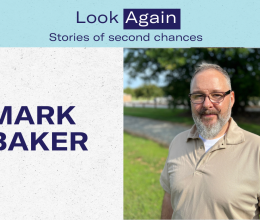Claims supported by ACLU of Virginia study of death penalty prosecutions
Stafford County— Lawyers for Jose Santos Portillo-Chicas are seeking dismissal of the capital charges brought against their client, claiming that Stafford County officials discriminate on the basis of race and gender in death penalty cases. A hearing on these claims will be held in Stafford County Circuit Court at 9:00 a.m. on Tuesday, October 30.
In court documents filed on October 15, Portillo-Chicas’s lawyers say that Stafford County Commonwealth’s Attorney Daniel M. Chichester has sought the death penalty in four of 13 death-eligible cases since 1990, and that three of the four defendants were male racial minorities who allegedly killed white women. In the lone case brought against a white male, the death penalty was dropped when the client cooperated with prosecutors.
“Racial bias and prosecutorial discretion are a dangerous combination, especially when someone’s life is in the balance,” said ACLU of Virginia Executive Director Kent Willis. “Racial prejudice, even when unconscious, is bound to creep into prosecutors’ decision-making when there are no procedures in place to prevent it.”
“No matter what one’s view is of the death penalty,” added Willis, “we should all be opposed to applying it in a way that discriminates on the basis of race or nationality.”
Of the 236 individuals executed in Virginia in the first three-quarters of the 20 th century, 201 were racial minorities. An ACLU of Virginia study of capital cases in Virginia since 1975 concludes that that the death penalty is still racially biased and subject to the whim of individual prosecutors. The study, Broken Justice (2003), concludes, for example, that in cases of robbery-murder a defendant whose victim is white is three times more likely to receive the death penalty that one whose victim is black.
The study also points out that the death penalty is arbitrarily applied because Commonwealth Attorneys have nearly unfettered discretion to decide when to bring capital charges in death-eligible cases. Richmond prosecutors, for example, rarely seek the death penalty, while counterparts in Danville almost always do. The result is that 64% of the death eligible crimes in Danville result in a death sentence, whereas only 10% do in Richmond.
Portilla-Chicas’s attorneys also argue that women, racial minorities and young people are consistently underrepresented on grand juries in Stafford County. Unlike trial jurors, who are typically chosen at random from voter rolls or DMV records, those who serve on grand juries in Stafford are hand-picked by the Circuit Court Clerk.




